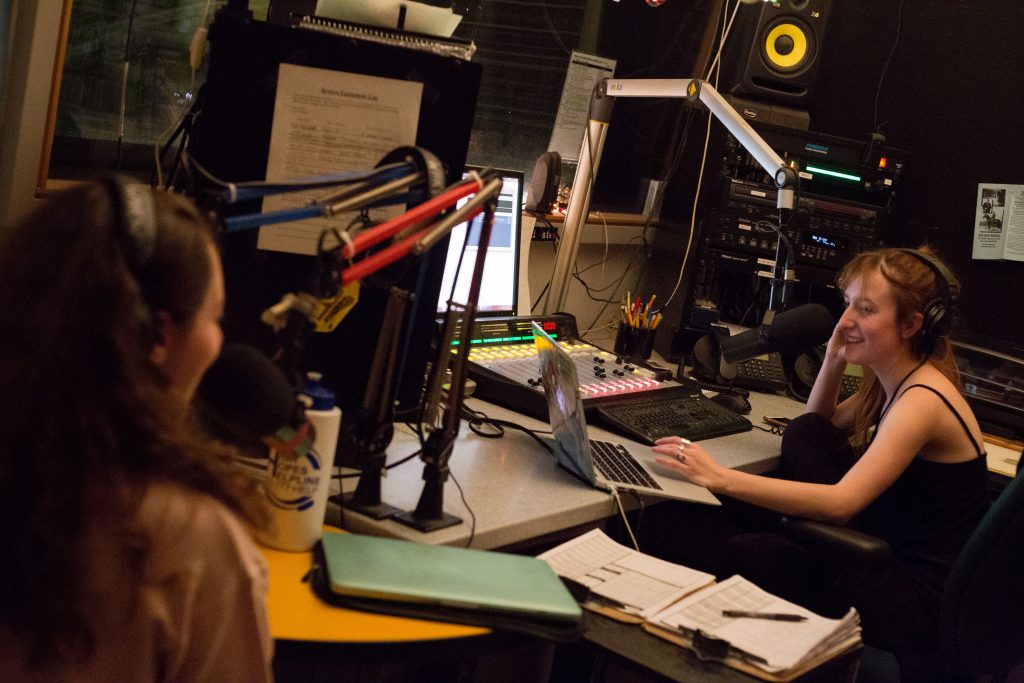
Since 1966, WHRW 90.5 FM has lived on as Binghamton University’s student-run, free-format radio station. However, the station’s tradition of offering disc jockeys free rein in music choice, from artist to genre, may be at risk.
On Oct. 31, the station was contacted by SoundExchange, a nonprofit organization that works to collect and allocate royalties for sound recording copyright owners (or record labels, in most cases) with music played on noninteractive digital transmission. This encompasses any livestream, cable or satellite transmission for which the listener doesn’t choose their music (unlike models such as Spotify or iTunes). The source in question is WHRW’s online livestream, which airs simultaneously with its radio broadcast.
According to the notice from SoundExchange, which is delegated as the authority on such matters by the U.S. Copyright Royalty Board, WHRW has failed to comply with Title 17, Chapter 1, Section 114 of U.S. copyright law. To comply with the law, which is dubbed the “Performance Complement,” a noninteractive stream like WHRW’s must play no more than four tracks by the same artist in a three-hour period, as well as no more than three tracks from the same album in a three-hour period.
“For me personally, as well as the team who has been working behind the scenes to figure out various solutions to the issue, it has been a stressful two weeks,” said Jeffrey Goldberg, the general manager for WHRW and a senior majoring in geography. “I’ve gotten a lot of supportive messages from people throughout the station’s history, including some former general managers who now work professionally in broadcasting, some going so far as to talk about their own experiences in dealing with issues such as this.”
Goldberg said that his team took down the online stream from whrwfm.org as a precaution on Oct. 31 after initial contact from SoundExchange. After meeting with the Student Association’s (SA) lawyer, WHRW has two options, according to a presentation in an emergency general body meeting last Friday. The station must either end its online streaming and continue as free format, wherein disc jockeys can play any music they choose, or continue streaming online for a small annual fee and comply with the sound-recording performance complement.
Goldberg, along with Jermel McClure, Jr., SA president and a senior majoring in political science, and Rebecca Ho, SA vice president for finance and a senior majoring in business administration, presented these options to all members of WHRW last Friday. Goldberg said that while the board of directors could have made this decision themselves, they wanted to handle this situation democratically.
“Seeing as this would be one of the largest changes to how the station operates in its 51 years of existence, we wanted everyone to be able to have their say on the matter,” Goldberg said.
WHRW members have not yet come to a conclusion on the matter, according to Goldberg, who also said the meeting showed mixed opinions. Sasha Kiosse, an apprentice at WHRW and a junior majoring in philosophy, politics and law, said that she is hoping the station will comply with the copyright law, which will limit DJ choices but allow the station to continue broadcasting online.
“I think we should keep the livestream and abide by the rules,” Kiosse said. “A lot of our listener base comes from the online stream and not the radio.”
This legal situation, though unprecedented, does not cause unsolvable problems for the station. Goldberg said that no matter which mutually exclusive solution is chosen, WHRW’s spirit will not be harmed.
“Despite all this, I believe station morale is still strong,” Goldberg said. “We still broadcast on 90.5 FM, we still reach to the greater Binghamton region, and we still are working to find ways to solve the issue at hand.”
Pipe Dream’s radio show, “On the Record,” airs on WHRW 90.5 FM. Pipe Dream’s “On the Record” team was not involved in the writing of this story.


